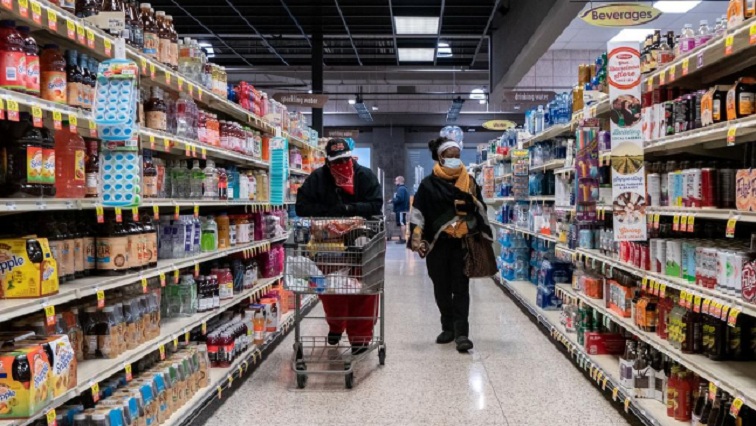Consumers are finding it hard to get by due to the high cost of goods and services. The price of food and other essentials has gone up with taxi fares also expected to increase from next month. A survey has found that the cost of living among South Africans has significantly increased, especially since the outbreak of the COVID-19 pandemic.
In April, the R350 social relief grant came to an end, adding more woes for the poor who were dependent on this monthly income for their sustenance.
A survey done by a technology company, M4Jam, has found that the cost of living for South Africans has become unbearable.
CEO of M4Jam, Georgie Midgley, says the majority of the respondents surveyed across the country say they had to change their spending and consumption patterns including cutting down on non-essentials such as data and fast food.
“99% of people felt that the cost of living has increased. The increase is largely felt in food and in transport, which is obviously the essentials that people need to live. After that, there’s things like utilities which is electricity, water, phone, internet – all of those essentials are increasing on a day-to-day basis. People are defiantly feeling squeezed and pushed,” says Midgley.
Human Rights organisation, Black Sash, has been advocating for the payment of a basic income grant for the most vulnerable and the poor. The group says the grant has provided a lifeline from starvation for many poor people in South Africa.
“There’s no income for them. People need to survive and we don’t know how they are going to survive. Government is failing to provide for its people in terms of its constitutional obligation because where you don’t have income support; the constitution says the government is obligated to provide financial support for those who cannot find (it). Despite people being able-bodied, wanting to work, there are just no jobs,” says Black Sash National Advocacy Manager, Hoodah Abrahams-Faker.
South Africa’s economy is currently not doing well with some economists even saying that it’s technically bankrupt. The unemployment rate is sitting at over 30% with government spending billions of rands to service its debt of over R3 trillion.
The country’s woes have also been exacerbated by the COVID-19 pandemic and the vaccine rollout lagging behind.
Economist, Bonang Mohale, says the poor will suffer the most during these difficult times.
“The loss of livelihoods, the people that are unemployed, that are retrenched would probably be ten times more than those people that have been killed by the virus. We lost about 2.2 million jobs. You multiply that by five people that are dependent on the single breadwinner. Now, you understand why 10 million people are unemployed. So, the majority of our people are going to starve to death, die from hunger and starvation,” says Mohale.
Taxi organisation, Santaco is also expected to increase taxi fares from the 1st of July.
Santaco Spokesperson, Thabiso Molelekwa says the petrol price increases and the impact of COVID-19 on the taxi industry, especially on operational costs are some of the reasons for the increase.
He also says government delays in subsidising the taxi industry is adding to the industry’s financial woes.
“If you look at the past eight months, you will realise that the petrol price increase pattern has been quiet steep. The industry has not recovered from the impact of COVID-19. You have operators who have not really settled the arrangements they have made with the different financiers in terms of their vehicles. Everything has gone up, and as a result, that would affect elements of what makes our operational costs, the insurance, instalments in terms of vehicle financing, spares that we use.”
In the video below, consumers urged to use credit wisely:
Tumi Mathaise: The cost of living is too high
It is 8am and Tumi Mathaise is already hard at work, slicing meat and boiling rice in big silver pots, placed on top of gas stoves. He sells a plate of food for R35 in the Johannesburg CBD.
With the money he gets, he pays rent for his family and sends some of it back home, in North West, to pay for his siblings’ tuition. He says since the COVID-19 outbreak, the price of basic foods, like mielie-meal, rice and oil has increased,. he says the price of the gas he uses for cooking has also increased.
“To be honest with you, it is difficult these days. You can see I am cutting this meat, but from this bag, I won’t get any profit. This bag is R700 but I am not going to get the profit I used to get before. Before, I used to get a profit of R300 or R350. But now I get R150. It means things have gone up. The cost of living is too high.”






